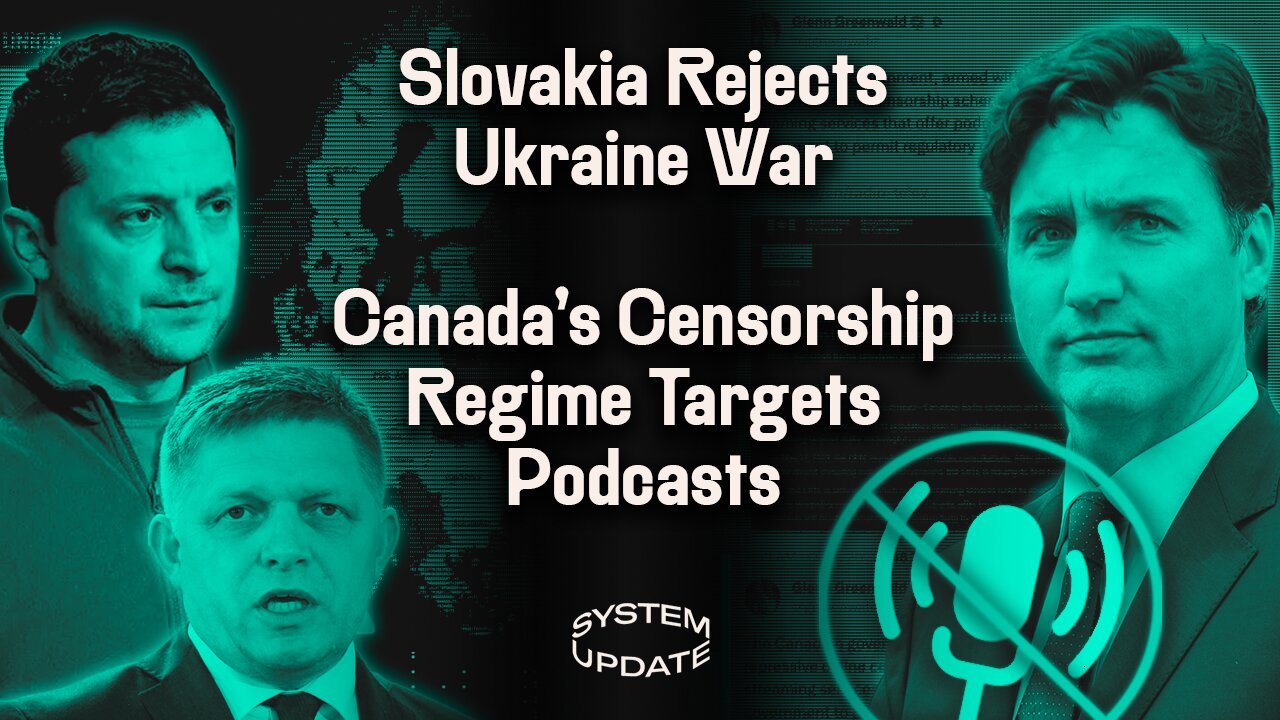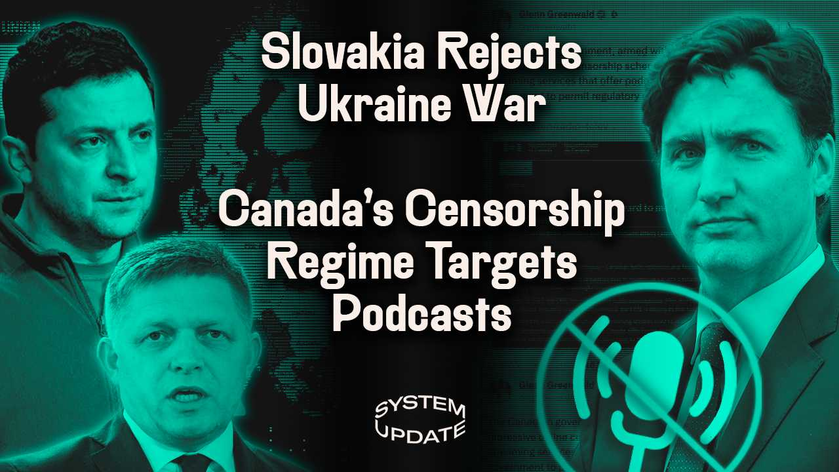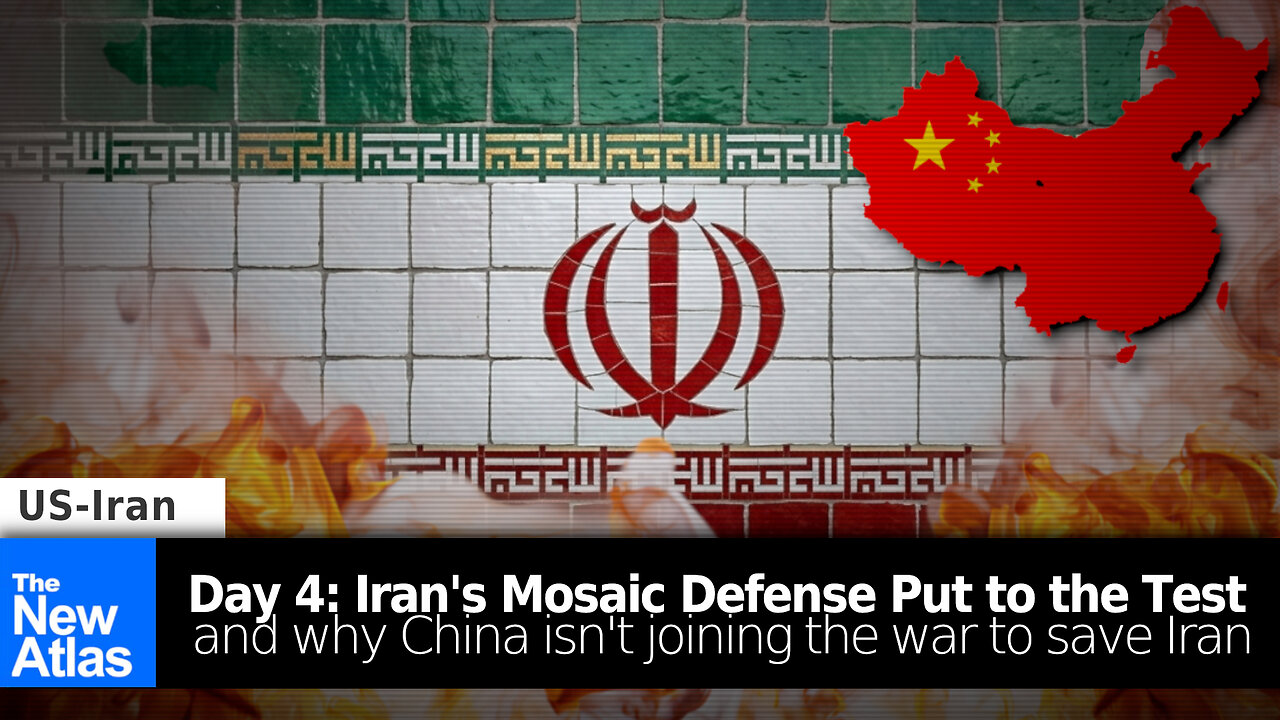Watch the full episode here:

Good evening. It's Monday, October 2.
Tonight: Public support for the war in Ukraine continues to erode – not only here in the U.S., where half of all House Republicans and at least half of all Americans now oppose any further spending to fuel the war, but public support is also eroding internationally – most dangerously, from the perspective of the U.S. and EU, it is eroding in Europe itself. Western elites have been warning for months that their ability to continue to fuel this war may be jeopardized in particular by upcoming European elections, in which parties and leaders who run on a platform of ending support for the war in Ukraine have significant chances of winning, as increasingly war-weary Europeans, in both East and West, start to wonder exactly why they are suffering and sacrificing so much to keep this war going even as there is virtually no progress.
Those concerns have been severely exacerbated by the results of a national election in a NATO country. Slovakia – formerly had one half of Czechoslovakia, which was part of the Iron Curtain and assumed to be anti-Russian and a bordering country of Ukraine – just delivered a resounding victory to the former prime minister, the populist Robert Fico, and his leftist Smer party, which means Direction. Fico ran on a platform of explicitly refusing to provide a single more cent or a single more weapon to Ukraine. It was really that emphatic, and that would be a radical change for a country that was one of the very first to send weapons to Ukraine, its neighbor, upon Russia's invasion. The election featured more than just Ukraine. Fico who had long been considered a leftist, cobbled together a more populist agenda – that stressed limitations on immigration and pushed back against the EU's LGBT agenda as much as it did traditional left-liberal social programs. But he sounded very standard populist themes by, for instance, often proclaiming, “People in Slovakia had bigger problems than Ukraine.”
The election outcome obviously bodes poorly for the future of Western support for the war in Ukraine, but that election result is also predictably being blamed on – three guesses – Russian disinformation, thus already being exploited to prove that greater and greater online censorship is needed.
As some of you may recall, the EU – to great fanfare in the Washington Post – just released a couple of weeks ago, a study purporting to show that Russian disinformation was proliferating online more than ever due to what the EU considers to be the failure of large social media platforms such as Facebook, Google and Twitter to censor more. The EU explicitly warned when it released the study that these censorship failures could result in the wrong election outcomes, including in Slovakia – yet again we see here the now common theme in the West that it is simply too dangerous to allow populations to enjoy free speech on the Internet – and the EU is wasting little time threatening to use its so-called Digital Services Act as a way to prevent more outcomes like the one we just saw in the middle of this vital NATO country in Central Europe by increasing even further the level of censorship controls it wields over the content of online speech.
Then, speaking of online censorship, the Canadian government just issued a truly chilling decree. It ordered that all platforms that allow podcasts – and that would obviously include this platform Rumble, as well as YouTube, Spotify and any other streaming service – immediately register with the Canadian government, to allow government regulators to subject these platforms to greater degrees of legal and regulatory controls. In May, the Canadian Parliament enacted the Digital Streaming Act, also known as C-11, and it became law when it received royal assent. Yes, Canadians need the permission of King Charles to enact laws. While its liberal advocates insisted that the law was not intended to empower them to censor political content – perish the thought – there is no question that this new law does enable exactly that. While the law is not as explicit or severe as the ones now enacted in the EU and the U.K., nor is it as severe as the one pending in Brazil and countless other countries. The key context for this law and for the Canadian government's new order for podcast platforms to register with it is the very flagrant pro-censorship climate in Canada, which repeatedly supports all sorts of legal limitations on hate speech and disinformation, as well as the increasingly authoritarian tendencies of the Trudeau government, which, as I'm sure you'll recall, waged extrajudicial war against peaceful truckers who are protesting COVID mandates, including by seizing their bank accounts with no due process. We'll examine all of these developments in Slovakia, in Canada and beyond to understand the implications for the war in Ukraine and the viability of online free speech in the West.
For now, welcome to a new episode of System Update, starting right now.























